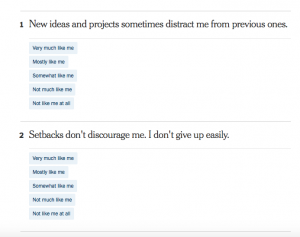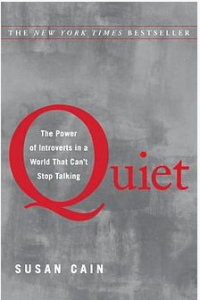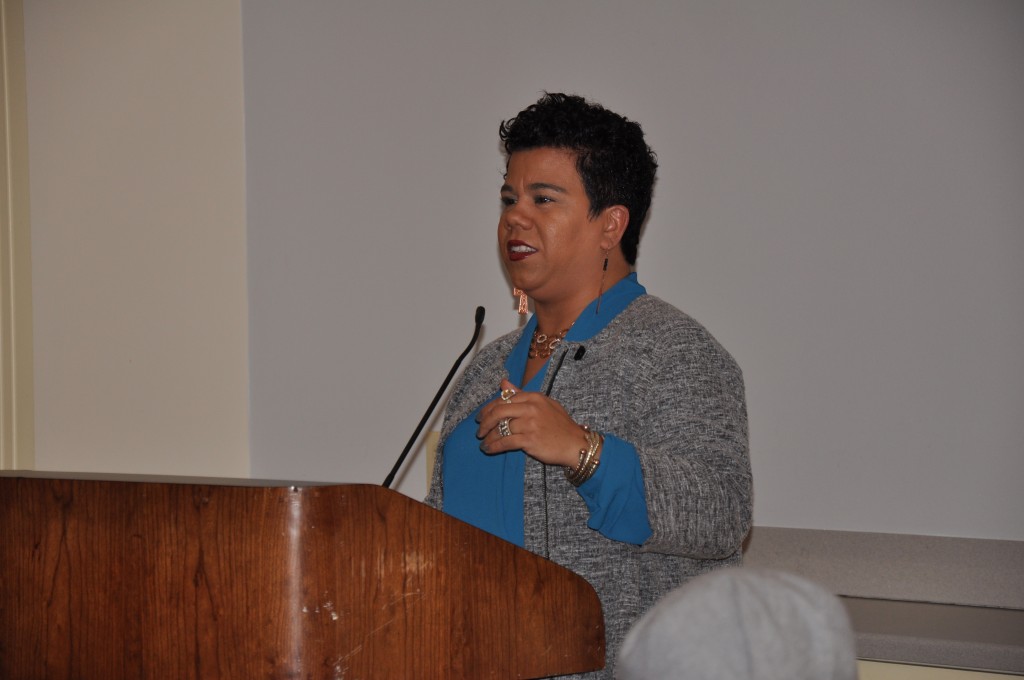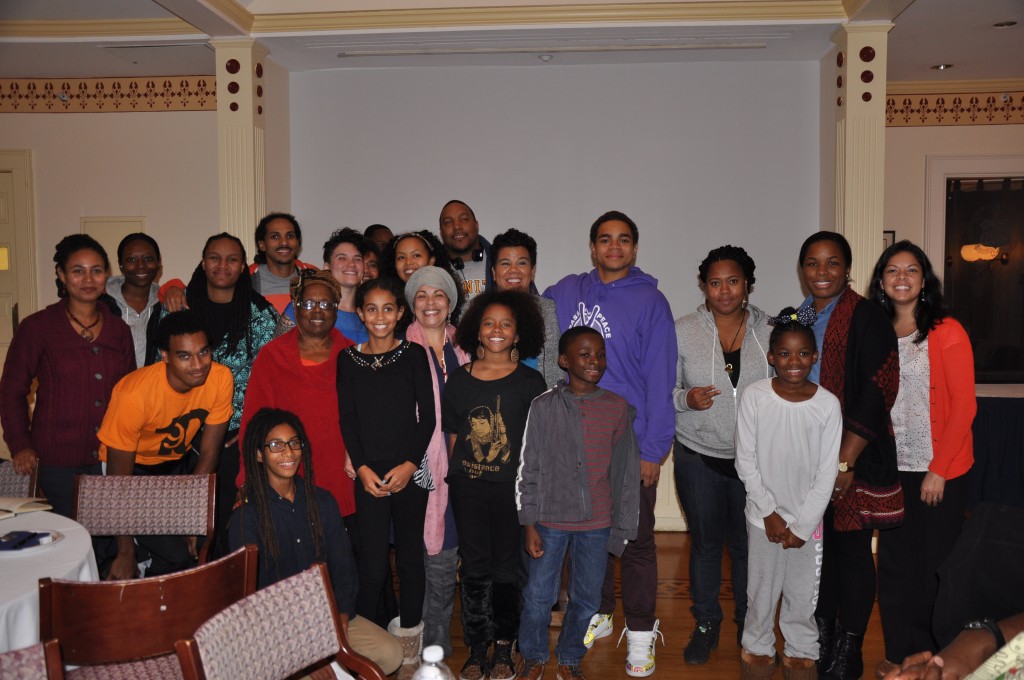
Category Archives: Blog
Alternative Predictors of Student Success Testing Project

Explaining the Test Optional Policy & What it Means for Students:
In 2015, Trinity College developed a test-optional policy that allows application readers to get to know the applicant well beyond just their grades and test scores.This change in policy stemmed from growing research in the area of non-cognitive skills, which leads us to believe that there are alternative factors, besides just standardized test scores, class rank, grades, and essays, that are essential to understanding potential student success in college and later in life.
The policy allows the admissions committee to truly look at and understand transcripts, recommendation letters, leadership positions, work history, involvement in school and community activities, and other appropriate predictors of success at Trinity College.
This test optional policy may, at first, seem confusing for students who are trying to understand what exactly the admissions committee is looking for. However, the policy enforces that the admissions committee will look at the student as a whole and not just as a test score. Students are presented the opportunity to present information about themselves that more accurately illustrates their diverse academic talents and potential.
What We Look At To Understand Academic Achievement:
- High School Grades – based on students’ transcripts
- Academic Coursework & Rigor
- Recommendation Letters from Teachers
*Students are encouraged to submit their SAT or ACT score only if the student feels that those scores best represent their academic ability and potential. The admissions committee does not make any assumptions as to why some students choose not to submit scores. Students will not be penalized for not submitting test scores. All students are given equal consideration in the admission process.
What We Look At To Understand The Student Beyond Academics:
- Students’ Personal Essays
- Recommendation Letters
- Involvement in School and Community Activities
- Leadership Positions
- Counselor Surveys – Counselors are asked to highlight characteristics they see in their students that could help us make more informed decisions
- Work History
Trinity College’s admissions is excited to be able to better understand and get to know applicants by placing a stronger emphasis on these factors and pieces of students’ applications. Our admissions committee looks for students that will not only be successful in Trinity’s academic environment, but who also possess attributes such as, but not limited to, curiosity, optimism, persistence, grit, and creativity. Research demonstrates that these attributes along with grades and academic rigor are strong indicators of success in college.
Research: The following section is a collection of scholarly and secondary sources that has informed the college’s decision to go test-optional and implement a holistic application evaluation process for all students.
Grit and Overcoming Adversity
Lead scholar, Angela Duckworth, a psychologist at The University of Pennsylvania and 2013 winner of the MacArthur “genius” grant from Harvard, studies concepts such as self-control and grit and how they predict future success later in life. Her new book Grit: The power of Passion and Perseverance explains her research on grit, which she defines as the ability to develop and sustain passion and commitment to achieve long-term goals, and goes in depth on stories and philosophies of people she calls “paragons of grit” including the Seattle Seahawks, West Point Cadets, and successful business leaders. She uses these stories to prove the importance of developing grit in students at a young age. Her Ted Talk below and subsequent research describe her work in detail. For your convince, we have outlined key points in both her research and new book, as well as common misconceptions that we hope will are clarified.
The Key to Success? Grit- Angela Lee Duckworth
Main Takeaways from Duckworth’s Research (also described in her above Ted Talk)
- IQ is not the only difference between the best and worst students
- In fact, some of the strongest performers have lower IQ scores, meaning that the smartest kids are not the ones necessarily performing the best on standardized tests
- We must have a better understanding of students and learning form a motivational and psychological perspective
- Characteristics of grit:
- Passion and perseverance
- Sticking with something for the future
- Working hard to make future happen
- In a study of students in the Chicago Public School District grittier kids are more likely to graduate even when matched on family income, standardized tests, and feeling safe at school compared to other kids
- Grit is unrelated to talent
- Part of having grit is having a growth mindset, a concept developed by Carol Dweck at Stanford, which is the practice that when students learn to persist through challenges and eventually succeed, they will begin to define themselves by that persistence and not by momentary failures or challenges. This mentality is widely used at KIPP charter schools and Dweck says that when studying KIPP graduates, those that can persist and graduate college will not only have a Bachelor’s Degree, but also something more valuable: the knowledge that they climbed a mountain to get it.
Grit: The Power of Passion and Perseverance- Angela Duckworth (May 2016)

- Grit is not unfamiliar to educators and has recently become a buzzword in the world of education
- Many have embraced this concept in recent years along with a new wave of research centered on non-cognitive traits and social-emotional skills like growth mindset, self control, empathy, and healthy relationship skills
- This book asserts that grit can be developed both by individuals themselves and by outside forces who help them feel challenged and supported
- For schools, this means giving students opportunities for deliberate practice so they can learn what it’s like to face a challenge and persist through it, developing the skill like a muscle, Duckworth says.
- Schools can also create supportive cultures and climates where students feel inspired to incorporate effort and persistence into their identity.
- For example, both the Seattle Seahawks and KIPP network of charter schools have promoted common language, behaviors, and norms that encourage effort and persistence in an effort to create a gritty culture
- Norm setting is important-
- “If you’re a Seattle Seahawk, you’re a competitor. You have what it takes to succeed. You don’t let setbacks hold you back. Grit is who you are.”
Clearing Up Common Misconceptions About Grit
- A curriculum has not yet been developed that schools can use to develop these character traits in students
- Grit is not something that can be tested on a standardized test
- In fact, Angela Duckworth recently resigned from the board of the group overseeing the California project, which has recently started requiring testing of social-emotional skills of students and including them in judging school performance
- Teaching social-emotional skills is often seen as a way to move away from a narrow focus on test scores in order to consider the whole child, so it would be contradictory to test students on a standardized test to determine which students possess these skills and which don’t.
- The education adage of “what’s measured gets treasured” doesn’t work for these skills since there is not a clear way to determine which students have these traits
- The biggest concern about testing for these skills is that the tests typically rely on surveys asking students to evaluate recent behaviors on mid-sets, like how many days they remembered their homework or if they consider themselves to be hard workers.
- This makes these tests highly susceptible to fakery and subjectivity.

Example questions from a recent New York Times Test to measure your level of Grit. Source: New York Times Grit Quiz
Introversion
Lead researcher Susan Cain is an American writer, lecturer and author of the 2012 non-fiction book Quiet: The Power of Introverts in a World That Can’t Stop Talking. This book and Cain’s research has become well-known for arguing that “modern Western culture misunderstands and undervalues the traits and capabilities of introverted people.”
The Power of Introverts-Susan Cain
Main Takeaways from Susan Cain’s Research (also described in the Ted Talk above)

- It is widely perceived that being quiet and introverted is wrong
- In actuality, ⅓-½ of the population can be classified as introverted
- Introversion is more about about how you respond to stimulation including social stimulation
- Extroverts crave a large amount of stimulation
- Introverts feel most alive in quieter or lower-key environments
- Problem: schools and workplaces, the most important institutions in our society are designed for extroverts
- In reality, introverts get better grades and are more knowledgeable, yet are seen as outsiders when they would rather work alone
- Introverts are much more passed over for leadership positions
- Even though, many times they are much more careful and cautious they are also less likely to take risks
- Adam Grant from the Wharton School of Business says that introverted leaders often deliver better outcomes than extroverts because when they are managing proactive employees they are more likely to allow them to run with their own ideas
- Extroverts more often than not want to put their own stamp on things that they risk losing other people’s good ideas along the way and allowing workers to lapse into passivity
- Everyone falls somewhere along the introvert/extrovert spectrum and Susan Cain argues that it is important to recognize the strengths of not only extroverts, but introverts as well
- Creativity and productivity is one of the biggest ways that introverts and extroverts differ
- People who are good at creating/advancing their ideas need some solitude to cultivate their ideas
- This is one of the biggest instances of introverts craving solitude
- What are we missing in this group of people who are often passed over? This is the question that the admissions office wants to explore by placing value on student’s character traits
- People who are good at creating/advancing their ideas need some solitude to cultivate their ideas
- It is becoming more apparent that something might be wrong with a leadership style that values quick and assertive answers over quiet, slow decision making
- We perceive talkers as smarter than quiet types even though GPA, SAT, IQ test scores reveal this to be inaccurate
- Extroverts get better grades in elementary schools but introverts do better in high school and college
- In college, introversion predicts academic success better than cognitive ability
- One study which tested 141 college students knowledge on 20 different subjects ranging from art to astronomy to statistics found that introverts knew more than extroverts in every single subject
- Introverts receive disproportionate number of graduate degrees, national merit scholarship finalist positions, and phi beta kappa keys
- They outperform extroverts on the Watson-Glaser Critical Thinking Appraisal test which is often used by businesses for hiring and promotion
- They are shown to excel at “insightful problem solving,” a skill that is valued in the business world
- Introverts overwhelmingly think before they act, digest information, stay on task longer, give up less easily, and work more accurately
Emotional Intelligence and Non-cognitive factor
William Sedlacek, Professor Emeritus at the University of Maryland, College Park, is a researcher who has authored numerous articles and books on a wide range of topics including racism, sexism, college admissions, advising, and employee selection. He is the recipient of numerous awards for his work. His work is widely used in influencing those who wish to use other factors other than test scores in the college admissions process.
Main Takeaways of Sedlacek’s Research
- Sedlacek has studied predicting academic success of student athletes using SAT and non-cognitive variable
- He uses Robert Sternberg’s three types of intelligence to explain his ideas
- Componential Intelligence: the ability to interpret information in a hierarchical and taxonomic fashion in a well-defined and unchanging context
- SAT Type→ people who score high on the SAT are this kind of thinker
- Experiential Intelligence: the ability to interpret information in a changing context-to be creative
- Standardized tests don’t measure this
- Conceptual Intelligence- has to do with the ability to adapt to a changing environment: the ability to handle and negotiate the system
- Componential Intelligence: the ability to interpret information in a hierarchical and taxonomic fashion in a well-defined and unchanging context
- He uses Robert Sternberg’s three types of intelligence to explain his ideas
- Standardized tests were never intended and do not measure experiential and contextual intelligence
- Sedlacek has studied non-traditional students and how their status impacts their admissions into higher education
- Traditionality may be useful to consider in making admissions or post matriculation decisions about students
- Non-traditional students have not had the experience of typical middle or upper middle class white students in the education system
- Non-cognitive variables have been shown to predict the success of non-traditional students in higher education including freshman grades, upper class grades, retention and graduation
- Non-traditional students have included US minority and international students at many levels in higher education
- Athletes and non-traditional students
- Athletes have a unique culture and set of experiences in life that differentiate them from others
- Spend a great deal of time together and often have common goals and values generated by their experiences as athletes
- Athletes have a unique culture and set of experiences in life that differentiate them from others
- Traditionality may be useful to consider in making admissions or post matriculation decisions about students
James Heckman, an American economist and Nobel Laureate has done extensive research on the limits of standardized testing. The main takeaways of his research and how they relate to the prior research mentioned above are listed below.
- Heckman notes that there has been a longtime neglect of important non-cognitive factors in college admissions
- Character skills rival IQ in predicting educational attainment, labor market success, health, and criminality
- There is extensive research available that reinforces Heckman’s conclusions:
- The experience of KIPP charter schools indicates students with a stronger academic profile (including higher SAT scores), but lacking in specific character traits, were more likely to drop out
- There are several studies that have focused on the differential effects of GPA and SAT scores on educational success
- Specifically researchers have found that college grades are correlated more strongly with GPA in high school than with standardized test scores
- Studies by Angela Duckworth (mentioned above) and others have found that GPA and college persistence are correlated strongly with character traits such as self control and perseverance
- Students with higher composite grit scores get better grades and are more likely to enroll in college and stay in college, proving that these traits are interconnected to each other and extremely valuable for assessing students’ potential to excel academically in college and professionally in their future word endeavors.
Coming Soon: Future interviews with students who went through the test optional process
Works Cited
Blad, Evie. “Angela Duckworth: To Grow Students’ Grit, Balance Challenges With Support.” Education Week. http://blogs.edweek.org/edweek/rulesforengagement/2016/05/angela_duckworth_to_grow_students_grit_balance_challenges_with_support.html?cmp=eml-enl-eu-news2-RM.
Heckman, J. J. (2008). Schools, skills, and synapses. Economic inquiry, 46(3), 289-324.
Sedlacek, W. E., & Adams-Gaston, J. A.V.A.U.N.E. (1992). Predicting the Academic Success of Student‐Athletes Using SAT and Noncognitive Variables. Journal of Counseling & Development.
Zernike, Katie. “Testing for Joy and Grit? Schools Nationwide Push to Measure Students’ Emotional Skills.” New York Times (New York, NY), February 29, 2016. Accessed May 8, 2016. http://www.nytimes.com/2016/03/01/us/testing-for-joy-and-grit-schools-nationwide-push-to-measure-students-emotional-skills.html?smid=tw-share&_r=0.
Issuing penalties to districts when families opt out of testing?
Recently the CT State Department of Education set penalties for school districts where large percentages of students and families “opt out” of testing. The CT Mirror reported on this strategy by the CT State Department of Education a few weeks ago. Note that there is also a bill in the CT Legislature to prohibit the CT SDE from issuing penalties to district rankings when families and students “opt out”.
Based on your understanding of the issue, what is your reaction to this proposal? (Respond before class on April 20, 2016!)
Here is the web link to the video, extra readings, and links related to our “Challenging the Test” panel last month.
Rosa Clemente Visits Trinity College
On Monday, November 9, 2015, Rosa Clemente visited Trinity College to present her talk entitled, “Thinking Critically about #blacklivesmatter”. Current and former students, faculty, and staff gathered in Smith House to hear Clemente, who is a nationally-known, Black Puerto Rican organizer, journalist, and entrepreneur.
Using the “Ferguson Moment” as a reference point, she focused her message of thinking and organizing critically for the current Trinity students. She reflected on past success and challenges in activism, scholarship; and she urged students to become active in whatever space, position, or situation they found themselves. She reminded students that there is always work to be done for racial, economic, and social justice.
In clear, real talk, Clemente was most eloquent in speaking about vulnerability in activism. Quoting the assassinated Black Panther leader Fred Hampton, she reminded students that “you dare to struggle, you dare to win”. In other words, despite the risks, activism – minor and major – opens up possibilities that were not there before.
She also talked about her own love for activism, working to find balance in her life, and the importance of being open about mental health struggles. Her openness and insight made it feel like we were in the living room of an aunt or titi (as she mentioned a few times) and listening to the sharp wisdom that you can’t hear outside of a familiar space. Like an aunt’s house, the crowd listened for nearly three hours into the night with new insights and unresolved questions.
The evening was sponsored by the Office of Multicultural Affairs and the Multicultural Affairs Council of the Student Government Association at Trinity College.

